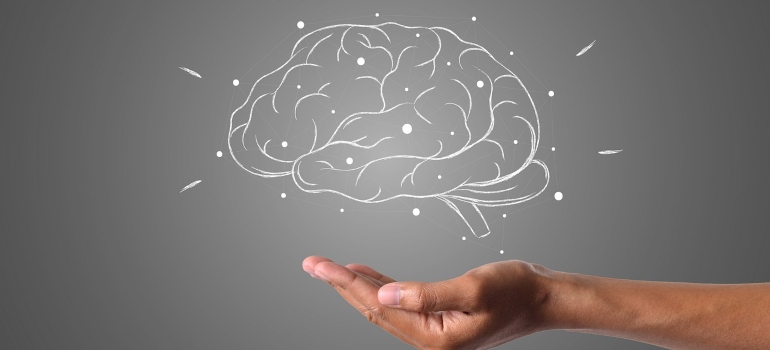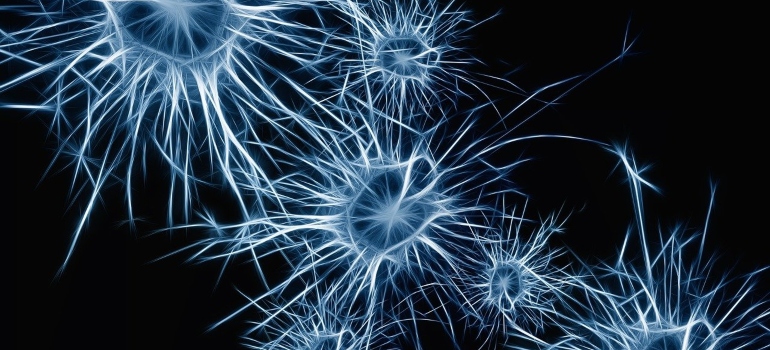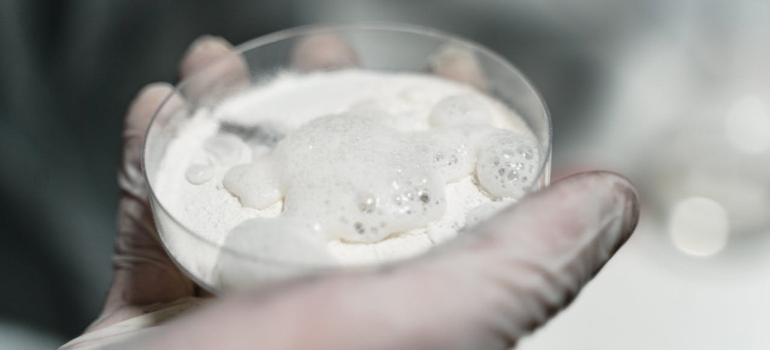Addiction profoundly affects brain chemistry, altering neurotransmitter function and disrupting neural pathways. Understanding how addiction impacts brain chemistry is crucial for addressing substance abuse effectively. In this article, we will delve into the intricate mechanisms through which drugs hijack the brain’s natural processes. By exploring the effects of addictive substances on neurotransmitter release and receptor activation, we can grasp the profound changes occurring within the brain. We aim to shed light on the complex interplay between drugs and brain chemistry through concise explanations and concrete examples. By gaining insight into these processes, we can better comprehend the challenges of addiction and develop more effective strategies for prevention and treatment. Join us as we uncover the impact of addiction on brain chemistry and its implications for individuals and society.
Overview of the Brain’s Structure and Function
The brain is a complex organ comprised of billions of neurons interconnected through complex neural circuits. Neurons are the fundamental units of the nervous system, responsible for transmitting information through electrical and chemical signals. Neurons communicate through neurotransmitters, which are chemical messengers released from the presynaptic neuron into the synapse. Upon reaching the synapse, neurotransmitters bind to receptors on the postsynaptic neuron, initiating a cascade of electrical signals. This process, known as synaptic transmission, allows information to be relayed between neurons. The role of synapses is critical in signal transmission, as they serve as the junctions where communication occurs between neurons. By modulating the release and reception of neurotransmitters, synapses regulate the strength and efficiency of neuronal communication, ultimately shaping brain function and behavior.

Understanding the brain’s structure and function is essential for comprehending addiction and mental health. Neurotransmitters play a crucial role in regulating mood, behavior, and cognition. Disruptions in neurotransmitter function can lead to the development of psychiatric disorders, including addiction. In rehabs in WV and other treatment facilities, a deep understanding of the brain’s inner workings guides therapeutic interventions to restore balance and promote recovery. Through targeted interventions and comprehensive treatment approaches, people can address the underlying neurobiological mechanisms driving addiction and achieve lasting improvements in their mental health and well-being.
The Effects of Drugs on Brain Chemistry
Drugs exert profound effects on the brain’s delicate chemical balance, disrupting its normal communication processes. By targeting neurotransmitter systems, drugs interfere with the transmission of signals between neurons, leading to widespread neurochemical imbalances.
Various mechanisms determine the effects of drugs on neurotransmitter function. For instance, some drugs enhance neurotransmitter release, flooding the brain with excessive amounts of dopamine or serotonin. Others inhibit neurotransmitter uptake, prolonging their presence in the synaptic cleft and intensifying their effects. Additionally, certain drugs mimic the structure and function of natural neurotransmitters, binding to receptor sites and activating or blocking them. For example, cocaine, a potent stimulant, blocks the reuptake of dopamine, leading to increased dopamine levels and euphoric effects.

Moreover, drugs can disrupt normal brain function by altering the sensitivity of neurotransmitter receptors or triggering adaptive changes in neuronal activity. Over time, these neuroadaptations contribute to the development of tolerance and dependence, driving compulsive drug-seeking behaviors characteristic of addiction. In the case of cocaine addiction, chronic drug use leads to desensitization of dopamine receptors, requiring higher doses to achieve the desired effects.
Furthermore, drugs can hijack the brain’s reward system, reinforcing drug-seeking behaviors while diminishing the sensitivity to natural rewards. This neurochemical imbalance memorializes brain circuits involved in addiction making it challenging for addicts to abstain from drug use despite negative consequences.
The effects of drugs on the brain are multifaceted, encompassing alterations in neurotransmitter release, uptake, and receptor activation. By disrupting the brain’s normal communication processes, drugs induce neurochemical imbalances that cause addiction and compulsive drug-seeking behaviors. Understanding the mechanisms controlling the effects of drugs on brain chemistry is essential for developing effective strategies for the prevention and mitigation of the impact of addiction on brain chemistry and mental health.
Brain Areas Affected by Drug Use
Drug use impacts several key brain regions, notably the basal ganglia, extended amygdala, and prefrontal cortex. These regions are critical in reward processing, stress regulation, and executive function. When exposed to drugs, these areas become hyperactivated, leading to exaggerated responses within the brain’s reward circuits. This overstimulation not only reinforces drug-seeking behaviors but also numbs sensitivity to natural rewards, such as food or social interaction. Consequently, some people may prioritize drug use over healthy activities, continuing the cycle of addiction.

Moreover, drug-induced changes in brain function extend beyond reward processing. The extended amygdala, involved in stress responses, becomes dysregulated, contributing to heightened anxiety and negative emotional states. Additionally, the prefrontal cortex, responsible for decision-making and impulse control, becomes impaired, leading to impulsivity and poor judgment. These alterations in neural circuitry underlie the development of compulsive drug-seeking behaviors observed in addiction.
Furthermore, understanding the impact of addiction on brain chemistry is crucial for designing effective treatment strategies. Long term drug rehab WV programs aim to address the multifaceted nature of addiction by targeting both the neurobiological and psychological aspects of the disorder. By providing comprehensive care that addresses underlying brain dysfunction and behavioral patterns, these programs offer people the best chance for sustained recovery. Through a combination of pharmacological interventions, behavioral therapies, and holistic approaches, one can learn to manage cravings, cope with stress, and rebuild life free from the grip of addiction.
The Effects of Drugs on Mental Health
The effects of drugs on mental health can be profound. Substance abuse can lead to significant changes in mood, cognition, and behavior. Transitioning from occasional use to addiction can exacerbate existing mental health issues or precipitate new ones. For instance, drugs can alter a person’s personality, leading to mood swings, irritability, or aggression. Moreover, chronic drug use can disrupt the brain’s natural balance of neurotransmitters, contributing to the development of depression. This disruption in brain chemistry can diminish one’s ability to experience pleasure from everyday activities, deepening feelings of sadness and hopelessness.

Consequently, drug abusers may turn to drugs as a means of self-medication, perpetuating a cycle of substance abuse and mental health deterioration. Additionally, the stigma surrounding addiction can exacerbate feelings of shame and isolation, further impacting mental well-being. Therefore, addressing substance abuse in conjunction with mental health treatment is essential for promoting recovery and improving overall quality of life.
The Pleasure Pathway and Drug Reinforcement
The pleasure pathway, or the brain’s reward system, is hijacked by drugs, leading to euphoria. Dopamine, a neurotransmitter involved in pleasure and reward, plays a central role in reinforcing drug use. When drugs flood the brain with dopamine, they create intense feelings of pleasure, reinforcing the behavior. Over time, repeated drug use alters dopamine signaling, leading to tolerance and the need for increased drug doses to achieve the same effects. Additionally, drug cues, such as seeing drug paraphernalia or being in environments associated with drug use, can trigger intense cravings long after cessation of drug use. These cravings are driven by changes in the brain’s reward circuits, which remain sensitized even after drug exposure has ceased. As a result, individuals may struggle with cravings, and the risk of relapse even after completing treatment is high.
Understanding the complex relationship between dopamine and drug reinforcement is essential for developing targeted interventions to address addictive behaviors and support long-term recovery. By targeting dopamine signaling and addressing neurobiological mechanisms driving addiction, drug addicts can learn to manage cravings and resist the temptation to relapse, ultimately achieving lasting sobriety and improved quality of life.
Also, to address these challenges, heroin rehab centers and other addiction treatment facilities utilize a combination of pharmacological and behavioral interventions to support people in overcoming cravings and managing triggers. By targeting the triggering neurobiological mechanisms driving addiction, these programs offer hope for long-term recovery and the restoration of healthy brain function. Through therapy, counseling, and behavioral interventions, everyone can learn to navigate cravings and develop resilience against relapse. Consequently, they can achieve sustained recovery and rebuild fulfilling lives free from substance abuse.

Why Drugs Are More Addictive Than Natural Rewards
Drugs are more addictive than natural rewards due to their ability to hijack the brain’s reward system. Unlike natural rewards, which trigger moderate dopamine surges, most commonly addictive drugs flood the brain with dopamine, creating intense feelings of pleasure and reinforcing drug-seeking behavior. This overstimulation leads to neuroadaptations in the brain, reducing sensitivity to natural rewards and increasing drug tolerance over time. As a result, individuals may require higher doses of drugs to achieve the same level of euphoria, perpetuating the cycle of addiction. Additionally, drug-induced changes in brain function can impair cognitive processes and decision-making, further contributing to addictive behaviors.
Comparing drug rewards to natural rewards, drugs create exaggerated dopamine surges, while natural rewards elicit more moderate responses. Consequently, abusers may prioritize drug use over healthy activities, leading to neglect of essential needs such as nutrition. In drug recovery, addressing nutritional deficiencies is crucial for restoring physical health and supporting overall well-being. However, overcoming addiction requires more than physiological changes; it requires addressing psychological factors and breaking the cycle of addictive behaviors. Achieving sustained recovery poses significant challenges, as people must navigate triggers, cravings, and the risk of relapse.
To break free from the grip of addiction, a person needs comprehensive support that addresses both the neurobiological and psychosocial aspects of the disorder. Nutrition plays a vital role in drug recovery, providing essential nutrients to repair the body and support brain function. Moreover, therapy and counseling help the addicts understand the root causes of their addiction and develop coping strategies to manage cravings and triggers. By addressing the complex interplay between brain chemistry and behavior, one can achieve lasting recovery and rebuild a life free from the shackles of addiction.

The Impact of Addiction on Brain Chemistry and Mental Health
In this overview of the impact of addiction on brain chemistry, we explored how drugs disrupt the brain’s normal communication processes, altering neurotransmitter activity and neural circuits. By overactivating reward circuits and impairing cognitive function, drugs create a profound imbalance in brain chemistry, leading to addiction and compulsive drug-seeking behaviors. Moreover, we discussed the challenges posed by drug-induced changes in brain function, including reduced sensitivity to natural rewards and increased drug tolerance.
Understanding addiction and mental health is essential for addressing substance abuse effectively. It highlights the need for comprehensive treatment approaches that target both the neurobiological and psychosocial aspects of addiction. By providing support tailored to individual needs, including pharmacological interventions, behavioral therapies, and nutritional support, a person can overcome the challenges of addiction and achieve lasting recovery.
If you or someone you know is struggling with addiction, it’s crucial to seek help and support. There are resources available, including rehab facilities, counseling services, and support groups, that can provide guidance and assistance on the journey to recovery. Remember, you are not alone, and there is hope for a better future. Together, we can work towards restoring balance to brain chemistry and overcoming the impact of addiction on brain health and overall well-being.



